In 2016, the Solvay group decided to support the University of Strasbourg to the tune of €500k to enable the development of very high-level research projects undertaken by brilliant PhD students recruited from around the world. The fund was supplemented by €400k in joint funding from the Foundation for Research in Chemistry.
This “programme of excellence for the chemistry of the future” had two objectives:
For the company, the programme was also a means of strengthening its relationship with the academic world and meeting promising young talents. The recipients, meanwhile, benefit from a globally recognised research environment within the best university for chemistry in the European Union*, with close ties to the world of business, institutions and local/regional authorities.
*Shanghai ranking 2023
Solvay scholarship winners among the best
Applications received from around the world
Meetings between the laureates and Solvay
Publications resulting from research funded by the fund
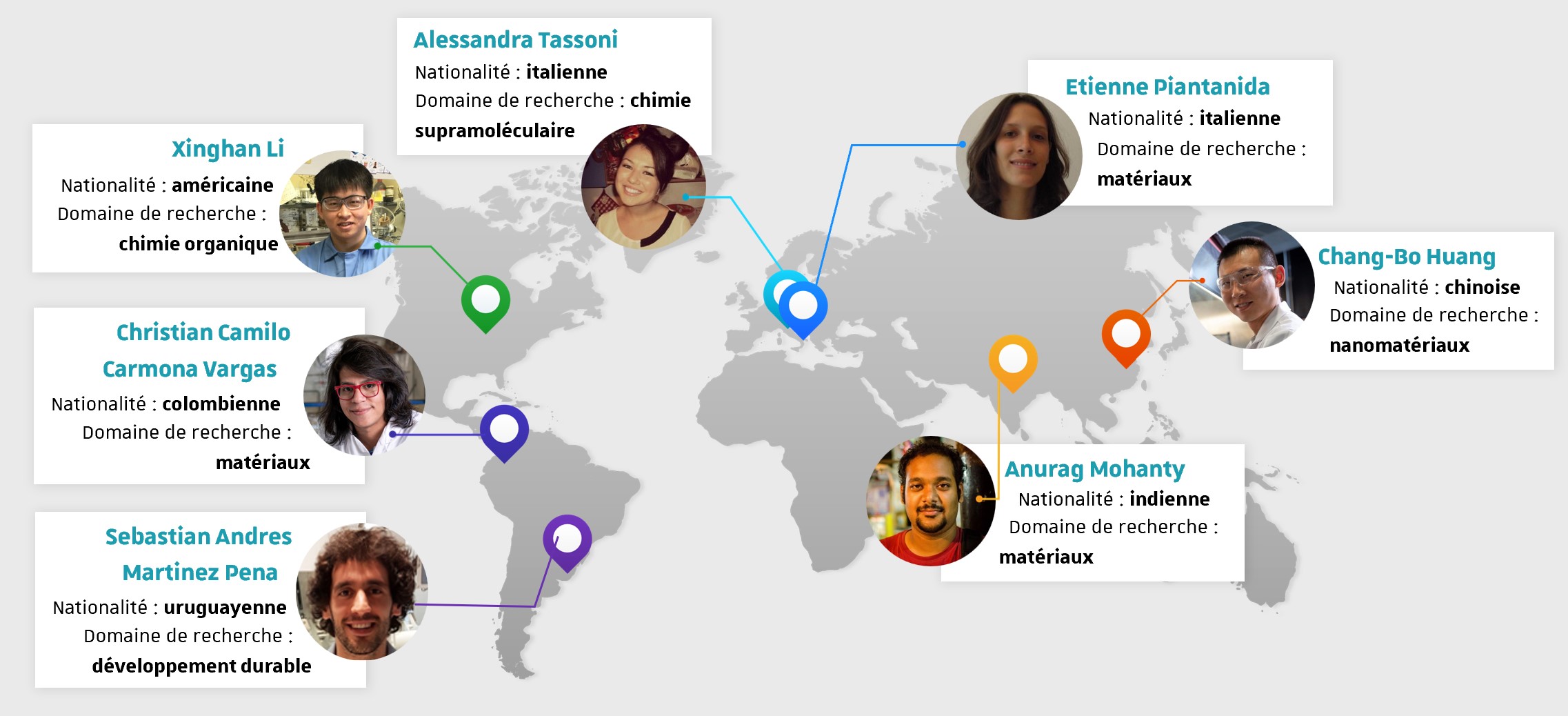
The 7 laureates of the Solvay fund have been selected internationally based on their excellent Master’s results.
The numerous applications received were subject to a rigorous selection process carried out by the foundation’s external scientific council.
Six years later, the quality of the research undertaken by the successful candidates is unequivocal: in total, 39 research articles have been published by the 7 beneficiaries of the Solvay fund. An exceptional level of scientific productivity to match the exceptional profile of the students.
Their research is brilliant, but also useful in addressing the major challenges faced by society. Their subjects are always linked to the major issues we currently face: sustainable development, health or new materials.
The 3 latest beneficiaries of the Solvay fund (Christian Camilo Carmona Vargas, Xinghan Li and Sebastian Andres Martinez Pena) joined the prestigious Complex Systems Chemistry graduate school when it was established in 2018. This highly demanding school offers a transdisciplinary programme taught in English, trains its students in management and exposes them to the R&D issues of importance to companies. The ambitious programme aims to train future chemistry leaders for academia and industry.
In the spirit of Solvay’s programme of excellence for the chemistry of the future, the school funds doctorates on subjects linked to strategic issues: intelligent materials, green chemistry, renewable energy and biomedical technologies. Like Solvay, this integrated Masters-PhD course aims to cultivate a new generation of researchers who will help change the world.
Since 2018, the Jean-Marie Lehn Foundation and the University of Strasbourg Foundation have been jointly running a patronage campaign entitled “Tous Nobels!”. The initial objective of attracting donations totalling €50M since 2010 has been exceeded by a significant margin. In total, over €57.5M has been raised, including €14.3M for projects supported by the Jean-Marie Lehn Foundation.
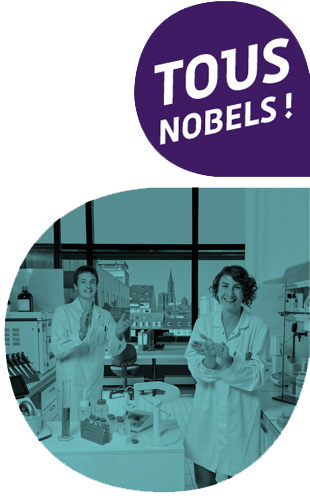
6,000 donors, both companies and individuals, have generously supported the University and the University Hospitals of Strasbourg over the past 12 years, enabling them to eclipse their target of €50M, an unrivalled sum within the sphere of French universities. In the words of the university’s president, Michel Deneken, the success of the campaign is on a par with the University of Strasbourg’s prestige: “It is reasonable to believe that the success of the patronage programme promoted by our two foundations has its source in the reputation of our university. […] Thanks to the generosity of our donors and the work of the foundations, this success now contributes to our influence.”1
The Jean-Marie Lehn Foundation’s mission is to support chemistry research, one of the key research disciplines in Strasbourg. This field of research lies at the heart of the key issues for our society: sustainable development, engineering and health, as well as data processing. These potential applications in strategic domains have attracted major private donors as well as interest from companies. The foundation counts over 50 companies amongst its patrons and has been able to mobilise €14.3M to support the development of the chemistry research cluster.
Some of the donations have been used to fund innovative and creative projects, the drive for excellence and scholarships for deserving students. In parallel, a general fund has been established by the foundation to provide permanent funding for Strasbourg’s researchers. Thanks to the interest earned, this endowment makes it possible to fund numerous chemistry research projects, at the frontiers of biology and physics.
With donations totalling €1.6M, BASF is an historic partner of the Jean-Marie Lehn Foundation. Thierry Herning, president of BASF France, sees the alliance as a means to “support the more rapid emergence of innovative solutions, in line with society’s expectations. Our priority is support for education, the promotion of science and chemistry, and the development of sustainable innovations”.
By distributing the donations and the interest earned by the fund to the laboratories, the foundation is able to support high-risk research that would struggle to attract funding from state bodies. A winning strategy to keep Strasbourg in pole position for chemistry amongst the European Union’s universities.
The University Research School for Complex Systems Chemistry offers multidisciplinary training complemented by initiation into the research and development issues of concern to companies. The impact of this emerging discipline established within an exceptional research cluster has not escaped the business community’s notice.
Complex Systems Chemistry is an emerging discipline that originated in Strasbourg, developing from the work of Professor Jean-Marie Lehn, Nobel Prize laureate in Chemistry and pioneer of the field. At the interface of chemistry, biology, materials sciences and nanosciences, the discipline has numerous applications in the fields of sustainable development (sustainable, biodegradable, self-repairing materials, etc.), health (nanomedicine, diagnostic tools, anti-pathogenic materials, etc.) and data processing (artificial intelligence, data storage, etc.)
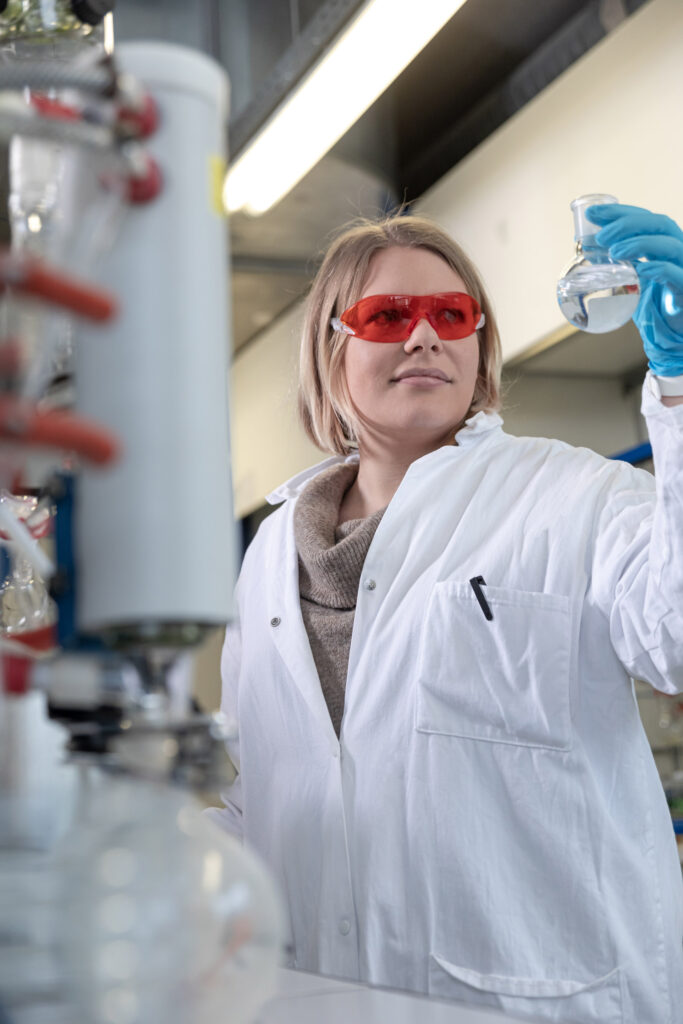
Within Strasbourg’s exceptional research cluster devoted to this field, comprising laboratories with a global reputation, the University Research School for Complex Systems Chemistry was established in 2018. Now under the umbrella the SysChem Interdisciplinary Thematic Institute (ITI), the integrated Masters and Doctorate programme, delivered in English, offers a multidisciplinary chemistry curriculum to highly talented students recruited internationally. It stands out by offering 14 months of hands-on experience in cutting-edge laboratories, with training through research complemented by initiation into companies’ research and development issues, as well as training in management and leadership.
The school’s prestige and its positive impact for society and the region have not escaped the attention of Total, the Banque Populaire Régionale and the Grand Est Region, whose funds raised via the Jean-Marie Lehn Foundation, totalling 1.36 million euros, make it possible to finance 15 PhD scholarships. This funding also provides the opportunity to drive research in various domains.
Xinghan Li, an American student, developed research transforming the structure of a malaria drug into an active anti-cancer agent. Andrei Golushko, a Russian PhD student, is developing an organic electronic component on a nanoscopic scale, helping to reduce the environmental impact from manufacturing electronic devices, given that it requires neither extraction of minerals nor any polluting purification process.
The Jean-Marie Lehn Foundation is responsible for implementing and maintaining a long-term partnership with companies. Research is a strategic issue for industrial groups and the partnership with the school is an essential selling point for the recruitment of future talents. The contribution of patrons to the school’s funding is crucial in attracting younger generations and enabling them to develop ambitious research projects that are essential in addressing the major challenges faced by society.
The Complex Systems Chemistry research school:
The SysChem Interdisciplinary Thematic Institute (ITI):
Students from the CSC research school
Photo credit: Nis&For.
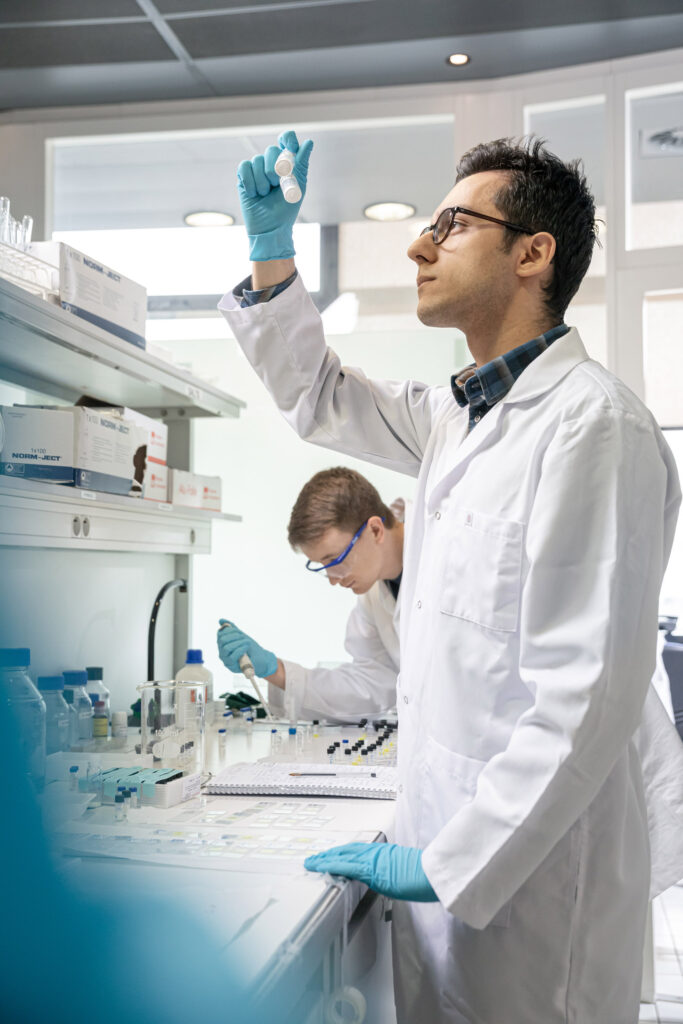
With a €150,000 donation, the BNP Paribas Foundation is co-financing an innovative teaching programme at Strasbourg’s Drug Discovery and Development Institute (IMS). Objectives: supporting equal opportunities for brilliant students, funding the discovery of new innovative therapies and helping to strengthen the pharmaceutical sector’s presence in Europe.
Within the University of Strasbourg, the Drug Discovery and Development Institute (IMS) consists of three branches that work in close synergy, covering all the dimensions necessary for the achievement of pharmaceutical innovation:
Each year, the institute launches the Drug Discovery and Development (DDD) Challenge, which acts as a showcase for the collaboration of its three branches. The competition is the only one of its kind in France and provides the opportunity for a pair of students at the end of their Masters courses to conduct a research project and jointly develop a solution to a genuine medical issue. The programme funds two trans-disciplinary doctorates (one in chemistry, the other in biology) on research themes with real potential to lead to the creation of a start-up and the provision of innovative therapies to patients. Supported by researchers, academic staff and industry players, whilst undertaking their research project, the PhD students also study the options for bringing their drugs into production, the potential market and the regulatory aspects.
Since the competition was established, the quality of the projects submitted and the calibre of the students have left no easy task for the expert jury responsible for deciding between the candidates. Each year, the selection of the winning pair is an arduous process. In light of this problem and in order to prevent promising projects from going without funding, the BNP Paribas Foundation has decided to increase the funds allocated to the programme. By means of a €150,000 donation, the foundation will co-fund a second pair of winning students alongside the institute.
“Promoting equal opportunities for deserving students has been a crucial mission for our foundation for many years,” explains Isabelle Giordano, Head of Group Philanthropy and Managing Director of the BNP Paribas Foundation. “If a second pair of students presents a major project, we want to give them the means to follow it through, both to support the careers of these talented young researchers and for the patients who will benefit from their future therapy.”
Signature of the donation agreement, in the presence of Isabelle Giordano, Head of Group Philanthropy and Managing Director of the BNP Paribas Foundation, and Sylviane Muller, director of the Strasbourg Drug Discovery and Development Institute and a researcher in immunology and therapeutic chemistry in Strasbourg.
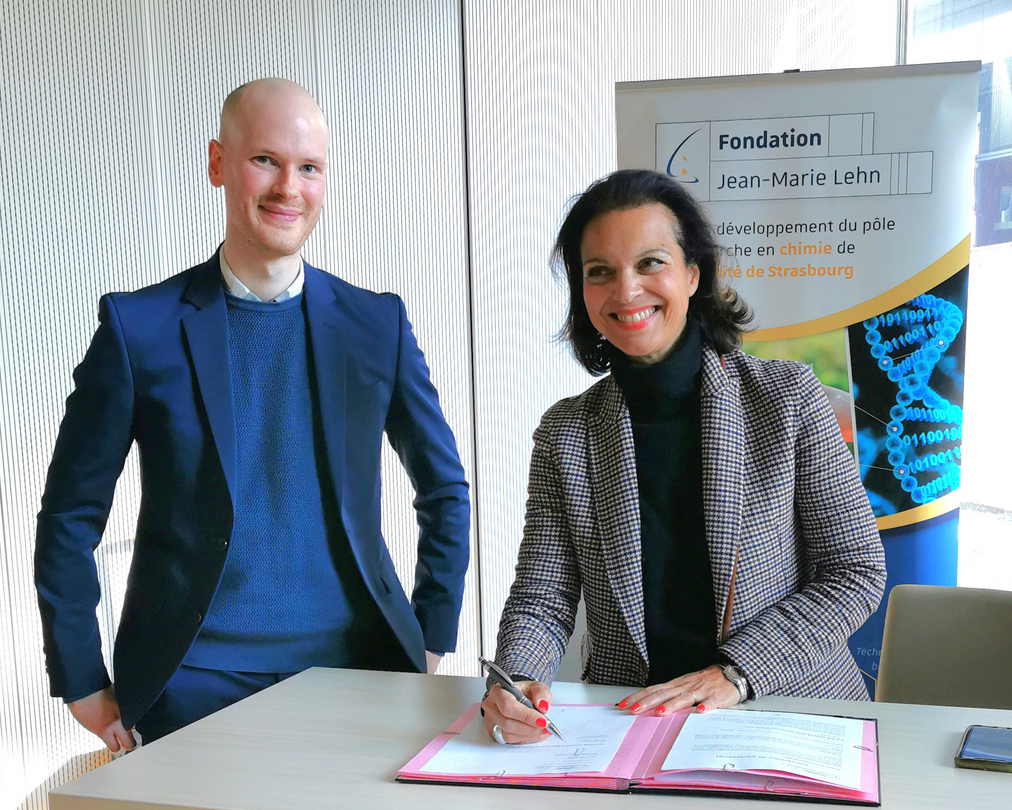
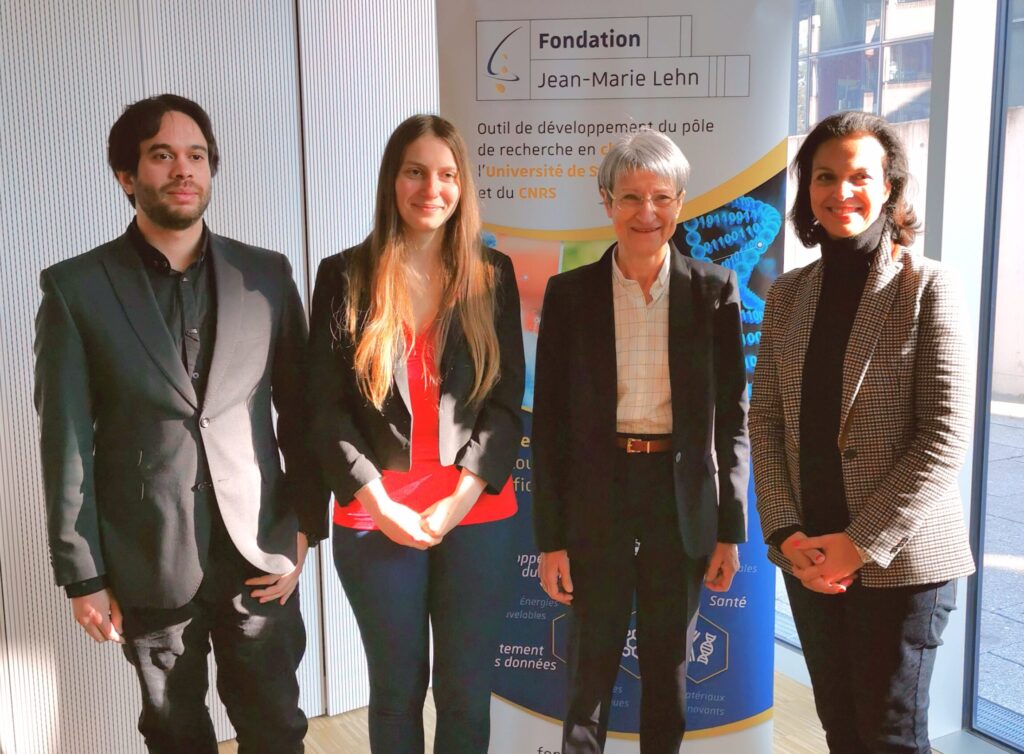
Several student teams presented their projects as part of the DDD Challenge 2023. The jury, composed of experts from academia and pharmaceutical companies, and chaired this year by Séverine Sigrist, President of Medtech Defymed, was able to assess the quality and potential for development of each project.
Among the candidates, two teams stood out and won the challenge: Charline Keller and Pedro Lopez, who are developing an innovative cancer therapy, and Khouloud Chtiba and Pualani Ateni, who are working on a new drug against Dengue.
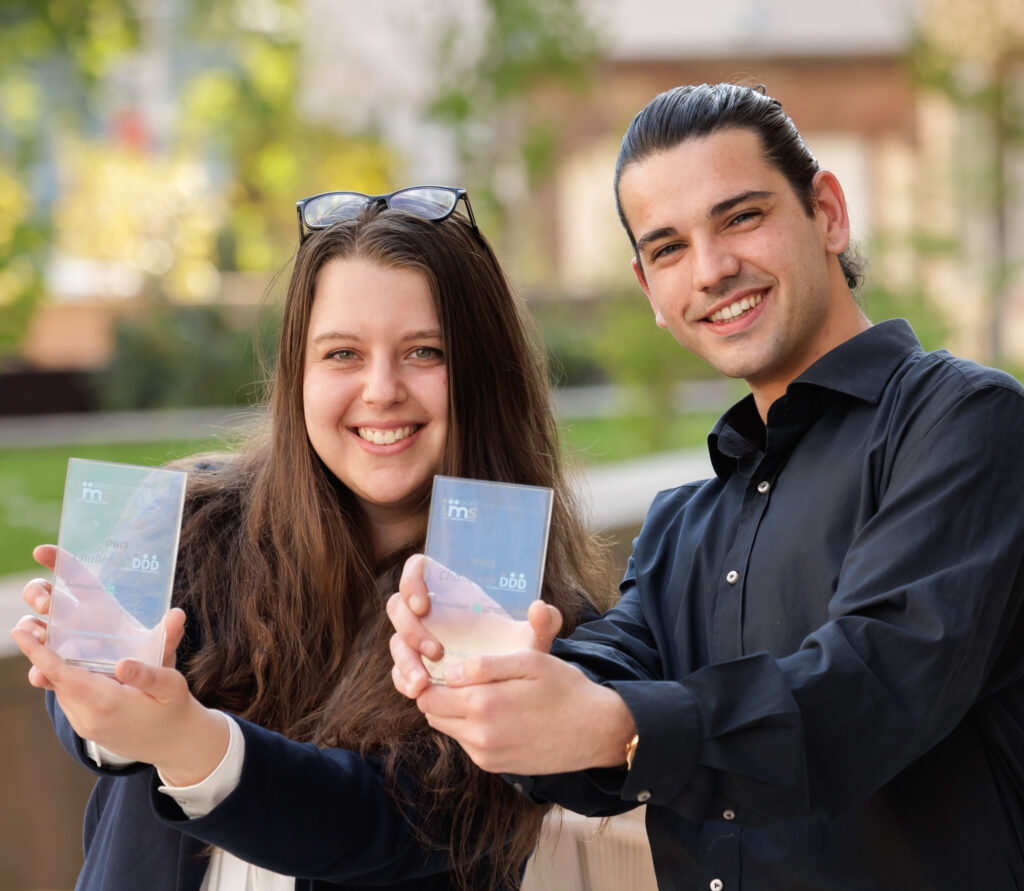
Charline Keller (chemist in Master’s degree program in Analytical Sciences)
Pedro Lopez (biologist in Master’s degree program in Pharmaceutical Biotechnology)
Together, the two young researchers aim to tackle a particularly aggressive bone marrow cancer: multiple myeloma. Often diagnosed late, this cancer proves fatal in 50% of cases within 5 years after diagnosis. The challenge lies in the heterogeneity of this cancer, where the cells that compose it can be vastly different from each other. This complexity makes it difficult to identify therapies effective against all types of cancer cells.
Charline Keller proposes using a technique she practiced during her master’s program to better understand their differences:
“We aim to isolate each cell derived from multiple myeloma to analyze the differential expression of certain problematic proteins. The protein named GSPT1 is involved in the proliferation of this cancer. Our project involves developing a tool that allows us to test treatments and understand their effects at the single-cell level,” says Pedro Lopez. With this approach, Pedro Lopez proposes designing a molecule capable of specifically destroying this overabundant protein: “The goal is to develop a CeLMOD, which stands for a molecule capable of specifically recognizing the GSPT1 protein and triggering its destruction by activating a cell’s natural elimination system. Thanks to the sorting of cancer cells performed by Charline, I can test the effectiveness of this treatment directly on samples from patients.” This approach also opens the possibility of choosing the most suitable therapy for the types of cancer cells analyzed on a case-by-case basis, for each patient.
For Pedro Lopez, this challenge is not just a thesis funding opportunity, “it’s a unique opportunity to work on a concrete research project leading to a therapy, as well as managing the entire process of bringing an innovation to market. I had already completed a 6-month internship at SATT Conectus (the University’s technology transfer office) to better understand how to transition from academic discovery to valuable innovation. This competition was perfectly aligned with my expectations.”
Beyond the impact for patients and students, the programme is part of the move to strengthen the pharmaceuticals sector’s presence in the heart of Europe. An issue of strategic independence that the BNP Paribas Foundation wishes to encourage: “The research emerging from this competition will ultimately lead to major medical advances, new drugs produced here, in Strasbourg. This is a great benefit for our region that must be preserved and supported.”
The University of Strasbourg was already committed to the fight against global warming, but is now accelerating its green transition policy. A round-up of the strategies being deployed.
In 2021, the university demonstrated its determination to embark on a green transition with the introduction of the post of Vice-President for Sustainable Development and Social Responsibility, backed by a new department. Approved in December 2022 by the university’s board, a route map sets out several concrete actions: raising awareness of environmental issues amongst students and staff, development of research linked to sustainable development, a policy for energy bill reduction and a vast evaluation of the university’s carbon footprint.
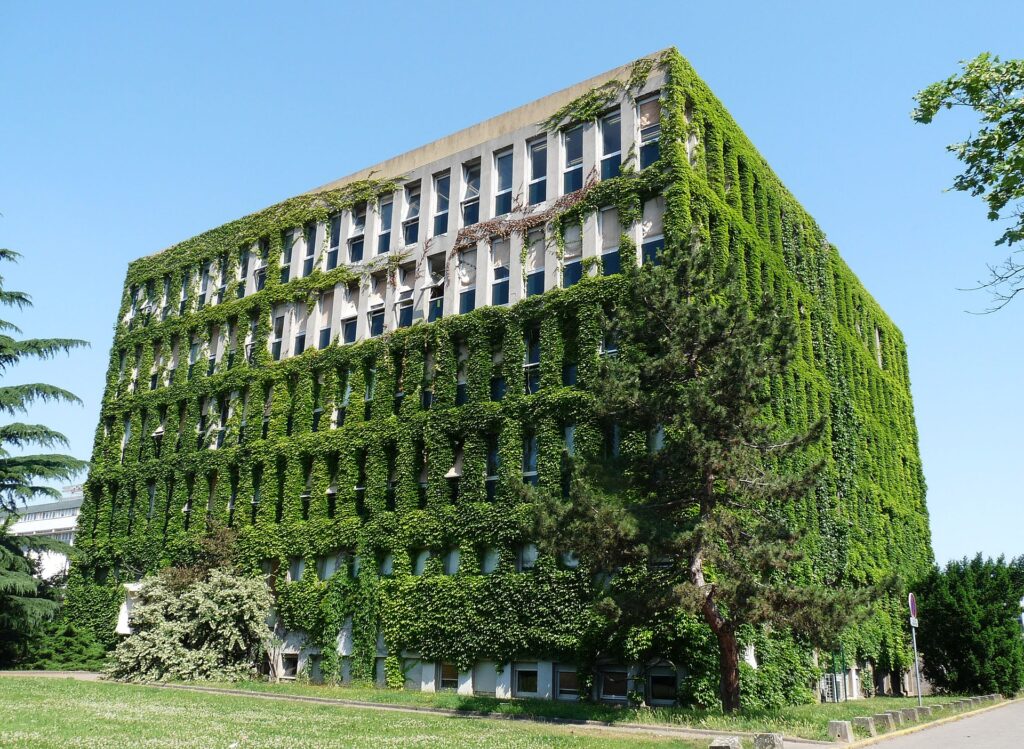
Aware that the success of a plan to reduce consumption relies on the engagement of its members, the university ultimately plans to train all students and staff in the challenges of the green transition. From the autumn term of 2024, undergraduates will be trained in the physico-chemical phenomena of climate change, its impact on life on earth and societies, the actions that can limit the rise in temperatures, etc.
Since 2018, one of the key disciplines at the university, Complex Systems Chemistry (CSC), has benefited from an innovative graduate school training brilliant students from masters to doctorate level in fields linked to sustainable development. For instance, CSC has led to disruptive innovations in sustainable, biodegradable and self-repairing materials. The young researchers are trained in academic research, but also in the issues of concern to companies, as a means of training the future scientific executives for our industries to find concrete solutions supporting sustainable development
In March 2023 the university also began a campaign to raise awareness of eco-friendly behaviour in order to trigger a change in habits. For each activity (event, symposium, trip, research project, etc) the environmental impact and energy consumption will be taken into account.
Finally, scientific research linked to sustainable development has a key role to play in providing long-term solutions. The president of the university, Michel Deneken, emphasises the institution’s importance as a major player in the energy transition: “The university must be the spearhead for tomorrow’s solutions: attentive to the needs of industry and the economic fabric for the sectors of the future […], engaging in cutting-edge research to develop solutions (decarbonised electricity, materials, start-up creation). We are working, acting and thinking for the future”.

Strasbourg’s chemistry research cluster enjoys a significant reputation in the world of business, institutions and local/regional authorities. The laboratories’ research continues to attract companies in the field and the foundation works to promote these interactions. The discipline of “chemistry” covers research at the heart of society’s concerns linked to the green transition. In Strasbourg, over forty research teams are working on frontier research in chemistry on subjects delivering promising innovations to reduce our impact on the environment: new energy technologies, CO2 capture and storage, sustainable high-performance materials, green and bio-sourced chemistry, etc.
Established as a tool for cooperation between university laboratories and business, institutions and local/regional authorities, the foundation presents companies with an offering of scientific expertise from the University of Strasbourg, structured around industrial issues. The objective is the joint development of research programmes able to give rise to new environmentally responsible concepts but also to develop solutions to the issues facing the industries that are stakeholders in the project.
